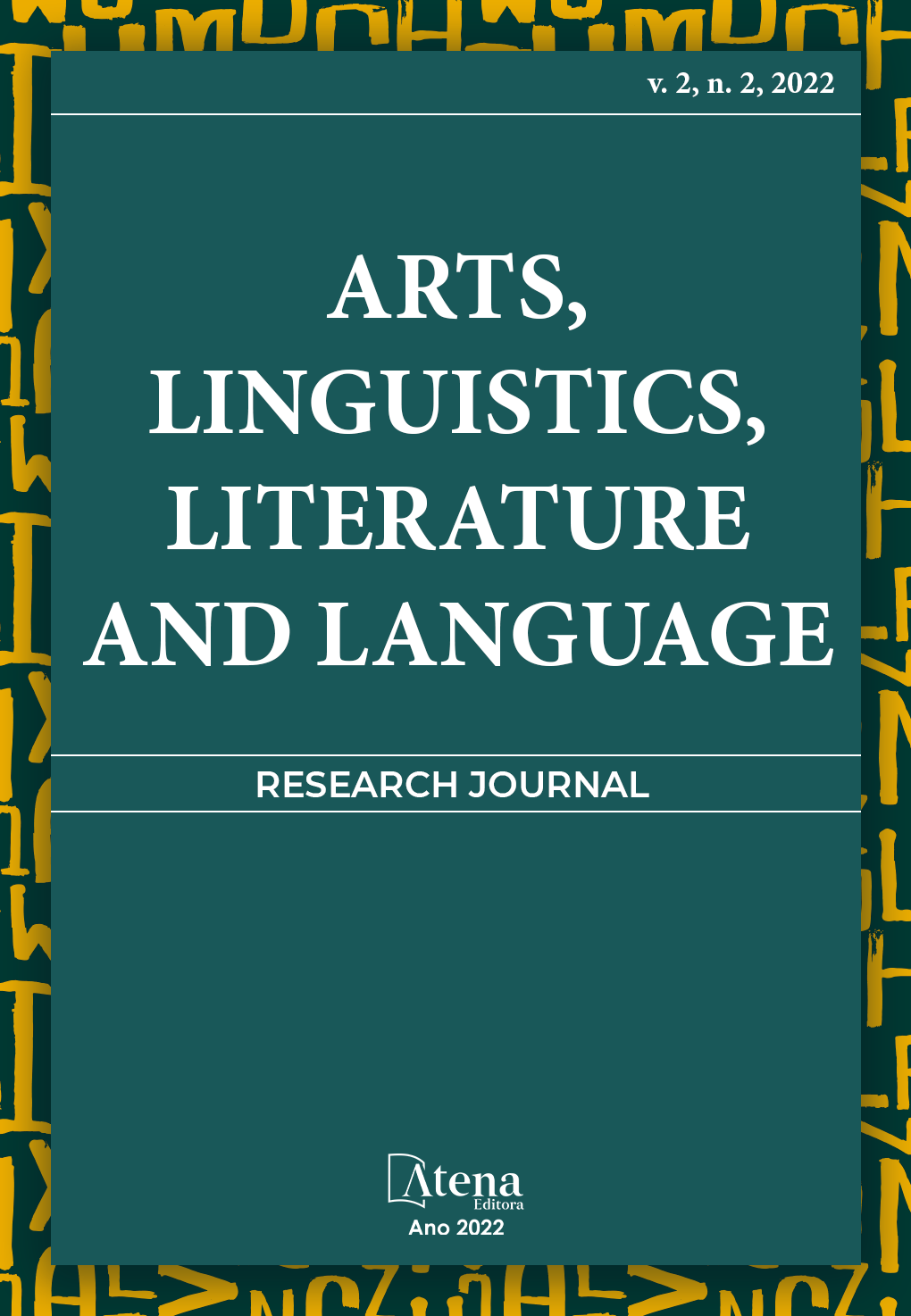
THE IDENTITY OF THE ENGLISH TEACHER: NARRATIVES, DISCOURSES AND BELIEFS ABOUT TEACHING ENGLISH IN TOCANTINS
This study is part of a larger research for the purpose of a master's thesis, brings results of a research carried out with three English language teachers from the State of Tocantins and aimed to investigate their teacher identities based on their beliefs and discourses present in their narratives about teaching English. The research is of an ethnographic, qualitative and interpretive nature of the data collected through autobiographical narratives and questionnaires, analyzed in the light of theories of Applied Linguistics (RAJAGOPALAN 2003, 2004, 2015; ALMEIDA FILHO 1992, 2001, 2013, 2014, 2015; BARCELOS 2001; , 2006a, 2006b) and the French Discourse Analysis (PÊCHEUX, 1983; ORLANDI, 2012 a, 2012b, 2015; 2016; CORACINI 2000, 2007; ECKERT-HOFF, 2008). Through the analysis of the discourses present in the autobiographical narratives and the questionnaires, it was possible to perceive that these teachers formed and still form their professional identity based on their negative and positive experiences, on their experiences in the classroom and outside it, mixed with their perspectives of a teaching meaningful English to the student. It was also observed that, as much as the teachers understand the teaching of a language as something bordering and sociocultural, they still cannot teach English from these perspectives, given the different circumstances imposed by the educational system of the country and the region where they work. The beliefs that teachers carry within themselves about the teaching of the English language were formed and shaped throughout their lives as teachers and, based on them, transforming their teaching approaches. It is these beliefs, belonging to a whole identity of being a teacher, that shape their praxis and through them these teachers are also transformed.
THE IDENTITY OF THE ENGLISH TEACHER: NARRATIVES, DISCOURSES AND BELIEFS ABOUT TEACHING ENGLISH IN TOCANTINS
-
DOI: 10.22533/at.ed.929222218038
-
Palavras-chave: Identity, Beliefs, Discourses, English Teacher.
-
Keywords: Identity, Beliefs, Discourses, English Teacher.
-
Abstract:
This study is part of a larger research for the purpose of a master's thesis, brings results of a research carried out with three English language teachers from the State of Tocantins and aimed to investigate their teacher identities based on their beliefs and discourses present in their narratives about teaching English. The research is of an ethnographic, qualitative and interpretive nature of the data collected through autobiographical narratives and questionnaires, analyzed in the light of theories of Applied Linguistics (RAJAGOPALAN 2003, 2004, 2015; ALMEIDA FILHO 1992, 2001, 2013, 2014, 2015; BARCELOS 2001; , 2006a, 2006b) and the French Discourse Analysis (PÊCHEUX, 1983; ORLANDI, 2012 a, 2012b, 2015; 2016; CORACINI 2000, 2007; ECKERT-HOFF, 2008). Through the analysis of the discourses present in the autobiographical narratives and the questionnaires, it was possible to perceive that these teachers formed and still form their professional identity based on their negative and positive experiences, on their experiences in the classroom and outside it, mixed with their perspectives of a teaching meaningful English to the student. It was also observed that, as much as the teachers understand the teaching of a language as something bordering and sociocultural, they still cannot teach English from these perspectives, given the different circumstances imposed by the educational system of the country and the region where they work. The beliefs that teachers carry within themselves about the teaching of the English language were formed and shaped throughout their lives as teachers and, based on them, transforming their teaching approaches. It is these beliefs, belonging to a whole identity of being a teacher, that shape their praxis and through them these teachers are also transformed.
-
Número de páginas: 15
- Selma Maria Abdalla Dias Barbosa
- Patricia Luciano de Farias Teixeira


